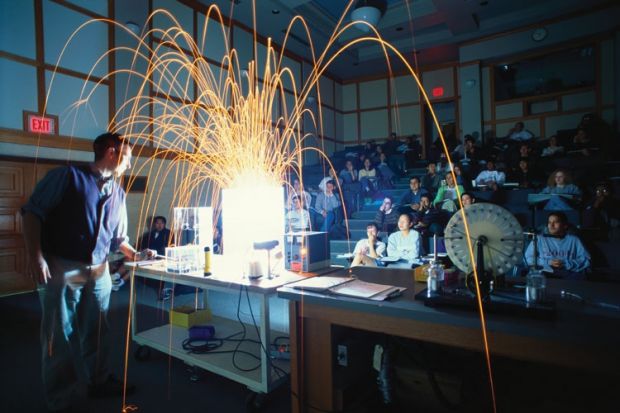That is one of the recommendations of a review of engineering skills in the UK by John Perkins, the chief scientific adviser to the Department of Business Innovation and Skills.
The call is one of several designed to increase the quality and number of students studying engineering at university to prevent a new wave of skills shortages in the profession.
Professor Perkins hopes that departments showing commitment to gender diversity will help boost the number of women studying for engineering degrees. Only 15 to 16 per cent of applicants to undergraduate engineering degrees are currently female.
Mr Willetts, the universities and science minister, announced the extra £200 million in funding last month for teaching facilities in science, technology, engineering and mathematics subjects.
He said winning bids should show “evidence of commitment to equality and diversity”.
According to Professor Perkins’ report, Review of Engineering Skills, demand for engineering degrees is growing overall. Over the past seven years, the number of students accepted on to degree courses has risen 20 per cent but some universities are not expanding to accommodate demand.
A recent report by the Royal Academy of Engineering highlighted the increasing number of applicants and rising Ucas tariffs at pre-1992 universities with no corresponding expansion, for example.
There are also signs that engineering departments at some institutions are in decline, according to the Perkins report. Student numbers are falling in electrical and electronic engineering, and manufacturing and production engineering.
In light of the increasingly market-driven higher education system, Professor Perkins also calls for a review of funding arrangements to ensure that engineering courses remain sustainable.
The report says that fewer master’s students are being supported by employers while the proportion of self-funded students has risen from 42 per cent to 68 per cent over the same period.
Meanwhile, the take up of career development loans, which are offered by commercial banks to fund postgraduate students, remains low. Professor Perkins suggests in his report that universities work more closely with banks and the government to make sure that students are more aware of such loans.
Professor Perkins said that higher education was the “pinnacle” of the engineering skills system and had a “strong international standing and reputation”.
“To maintain and enhance this position, and the quality and capacity of the engineering HE system, future investment in facilities, and strong engagement by industry and the profession will be essential,” he added.




